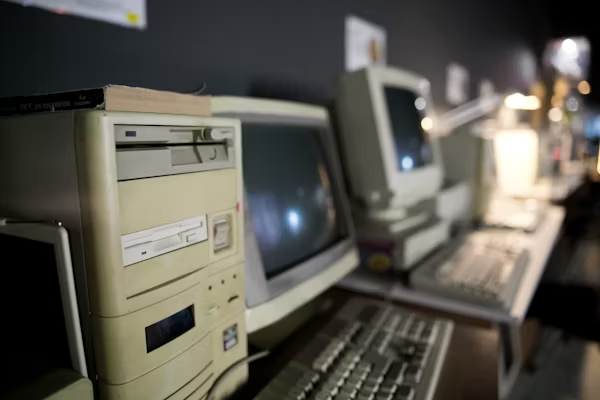Before smartphones and affordable Wi-Fi became part of everyday life, many Filipinos had their first online experiences through a system called Pasonet. This word, adapted from the phrase “pa-Internet,” captures an era where coin-operated computer rentals gave students, gamers, and everyday users access to the online world for a few pesos. More than just machines in a corner shop, Pasonet reflected a culture of resourcefulness, accessibility, and community. To understand its importance, we need to revisit the time when internet access was a privilege, and Pasonet made it possible for many.
The Origin of Pasonet
The rise of Pasonet can be traced back to the late 1990s and early 2000s, a period when personal computers and home internet connections were still luxuries. The idea was simple but powerful: instead of paying for a whole hour, a person could insert coins—usually five or ten pesos—for a set number of minutes online. This affordability made Pasonet attractive, especially to students and young people who wanted a quick way to browse the web, send emails, or log into social media platforms that were just beginning to grow.
How Pasonet Worked
Unlike traditional internet cafés where customers paid upfront at the counter, Pasonet relied on coin slots attached to computers. Users inserted coins, and the machine automatically timed their session. Once the paid time ended, the screen locked until more coins were added. It was straightforward, efficient, and designed for short-term usage, making it perfect for those who only needed a few minutes online.
This unique system allowed internet access to become more casual, like buying a snack from a vending machine.
The Popularity of Pasonet in the Philippines
The Philippines quickly embraced Pasonet because of its affordability and convenience. At a time when monthly internet subscriptions were beyond the reach of many households, Pasonet became the solution. It was especially popular among students who needed to research for school projects or type assignments, and gamers who wanted quick matches on online platforms.
Shops offering Pasonet services were everywhere—from small neighborhood stores to makeshift computer rental hubs near schools. The familiar clicking of keyboards, the glow of screens, and the buzz of conversations filled these spaces, creating a unique social atmosphere.
Pasonet and Filipino Youth Culture
For many young Filipinos, Pasonet was more than a tool—it was an experience. It became a gathering spot for groups of friends, a place to hang out after school, and an introduction to online gaming communities. Games like Ragnarok Online, Counter-Strike, and Defense of the Ancients (DotA) often echoed through Pasonet shops.
It wasn’t just about entertainment. Pasonet also became a window to global communication, allowing users to create Friendster or early Facebook accounts, chat on Yahoo Messenger, or explore the vast internet for the very first time. For many, it was their stepping stone into the digital age.
Economic Impact of Pasonet
Beyond its cultural value, Pasonet had a significant economic influence. It provided livelihood opportunities for small business owners who could set up multiple coin-operated computers in small spaces. These shops generated steady income with minimal staff and maintenance.
Additionally, Pasonet empowered low-income communities by offering affordable access to technology and information. It leveled the playing field in some ways, giving people who couldn’t afford personal computers a chance to learn digital skills.
The Role of Pasonet in Education
Students were among the biggest beneficiaries of Pasonet. During the early 2000s, when internet research began to replace library visits for school assignments, Pasonet stations offered a cost-effective way to access information. Many students learned to type documents, print projects, and navigate search engines like Google or Yahoo with just a few coins.
It wasn’t unusual to see students crowded around a single computer, working together on a school project, or helping each other figure out new software. In this sense, Pasonet fostered not just learning but also collaboration.
Gaming and Entertainment in Pasonet Shops
One of the most memorable aspects of Pasone’t was its connection to online gaming. While internet cafés already existed, Pasonet provided the same excitement at a fraction of the cost. Multiplayer games brought groups of friends together, transforming small shops into lively gaming hubs.
From strategic matches to late-night gaming marathons, Pasone’t shops became the birthplace of many gaming communities. These spaces also served as early platforms for competitive gaming, long before esports became mainstream in the Philippines.
Social Interaction in the Era of Pasonet
Unlike today’s personal internet use, Pasone’t was a shared experience. People didn’t just log in and isolate themselves—they interacted, exchanged tips, and even made new friends. It was common for strangers to chat while waiting for their turn, or for groups of students to gather around one computer.
This social element made Pasone’t not only about connecting online but also about connecting offline within the community.
The Decline of Pasonet
As technology advanced, the need for Pasone’t gradually faded. The increasing affordability of home Wi-Fi, the rise of smartphones, and the expansion of mobile data rendered coin-operated internet less relevant. By the 2010s, Pasone’t shops began closing down, unable to compete with the convenience of personal internet access.
What was once a staple of Filipino life slowly became a nostalgic memory, remembered fondly by those who grew up during its peak.
Pasonet as a Cultural Memory
Even though Pasone’t is no longer common, its legacy remains. It represents a time when resourcefulness and creativity shaped how people accessed technology. For many, Pasone’t was their first taste of the internet, their first online game, or their first social media profile.
Today, conversations about Pasone’t often spark feelings of nostalgia, reminding people of simpler times when a few coins could open the door to the digital world.
Comparing Pasonet to Modern Internet Access
Modern internet access is fast, wireless, and personal. Yet, it lacks the communal experience that Pasone’t once provided. While today’s users enjoy unlimited browsing at home, the charm of gathering in small shops, sharing computers, and stretching every peso for internet time is irreplaceable.
In many ways, Pasone’t taught early digital users the value of time, money, and connection—lessons that still hold meaning in our increasingly digital world.
Why Pasonet Still Matters Today
Though outdated, Pasone’t continues to matter as part of the Philippines’ digital history. It played a role in shaping how Filipinos embraced technology, particularly in rural and low-income areas. It also highlights the importance of affordable internet access, a challenge that persists even today.
Pasone’t reminds us that accessibility should always be a priority in technological development. After all, innovation is most powerful when it reaches everyone.
Conclusion
Pasone’t may no longer dominate street corners or neighborhood stores, but its influence lives on in the memories of those who experienced it. It was a symbol of accessibility, a tool for education, a hub for gaming, and a gathering place for communities. More than just a coin-operated computer system, Pasone’t reflected the Filipino spirit of ingenuity and resilience. In remembering Pasone’t, we celebrate an important chapter in the journey toward a more connected world.
FAQs about Pasonet
1. What does Pasonet mean?
It comes from “pa-Internet,” referring to short-term computer and internet rentals.
2. When was Pasonet popular?
It thrived in the Philippines from the late 1990s to the early 2010s.
3. How much did Pasonet usually cost?
Most shops charged around 5 to 10 pesos for several minutes of usage.
4. Who commonly used Pasonet?
Students, gamers, and anyone who needed quick and affordable internet access.
5. Why did Pasonet decline?
The rise of affordable Wi-Fi, smartphones, and mobile data made it less necessary.
6. Is Pasonet still around today?
It’s rare now, but some communities may still have coin-operated computer rentals.


